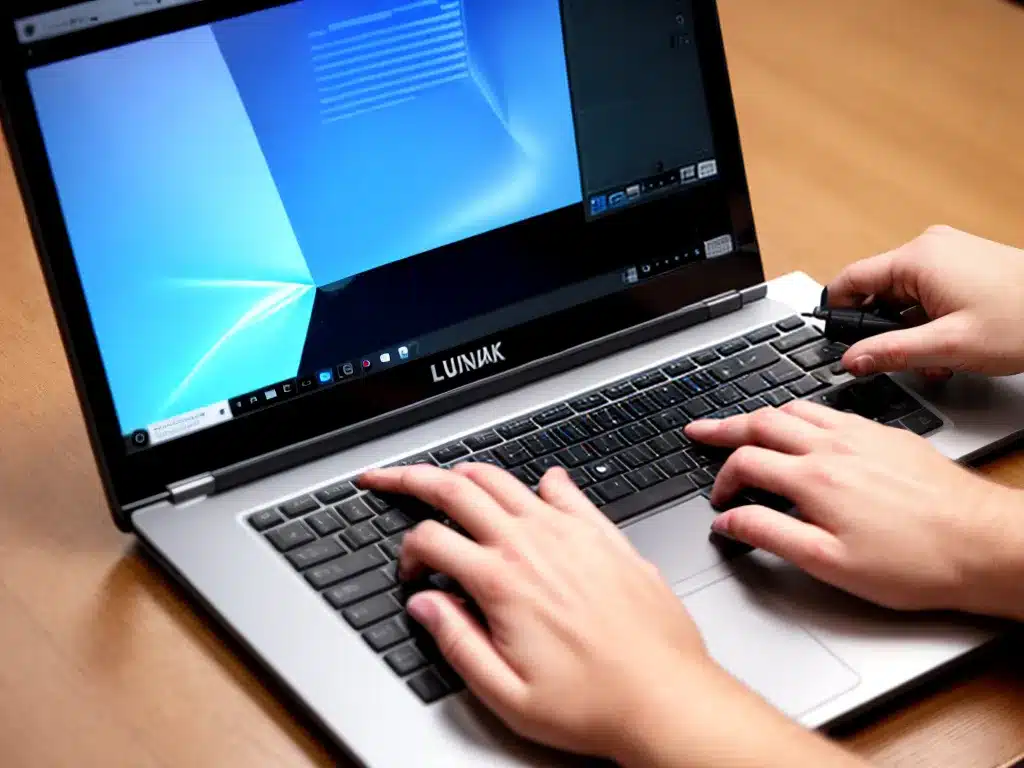
Introduction
Having issues with your laptop battery draining too quickly can be incredibly frustrating. There are a number of potential causes for rapid battery drain, but thankfully there are also steps you can take to troubleshoot and resolve many of these problems. In this guide, I will walk through the top reasons your laptop battery may be draining quickly and provide actionable tips to extend your battery life.
Check Activity Monitor for Resource-Intensive Apps
One of the most common reasons for rapid battery drain is having apps open that consume a lot of processing power and resources. Activity Monitor is a great tool on Mac laptops that allows you to see which apps and processes are using the most CPU and memory.
To check Activity Monitor:
- Open Activity Monitor (located in Applications > Utilities)
- Click the CPU tab to see apps and processes sorted by CPU usage
- Click the Memory tab to see memory usage
- Quit or force quit any apps using high resources that you aren’t actively using
This can make a big difference in battery life if you have apps running that don’t need to be open.
Adjust Screen Brightness
The screen is one of the most power-hungry components on a laptop. Lowering your screen brightness can have a significant impact on battery life.
- Go to System Preferences > Displays and drag the brightness slider to around 50% or lower
- For MacBooks, enable Auto-Brightness so the screen dims automatically when needed
You may need to adjust brightness depending on ambient light, but keeping it lower will generally extend battery life.
Disable Unnecessary Animations and Visual Effects
All those fancy animations and visual effects in macOS look nice, but they can drain your battery. Limiting these unnecessary graphical flourishes can provide a boost.
- Go to System Preferences > Accessibility
- Under Vision, check the box for Reduce motion
- Under Display, check the box for Reduce transparency
This will tone down animations, transparency, and other effects that are taxing on the GPU and graphics processing.
Manage Apps Refreshing in Background
Apps that continually refresh content in the background can provide a major drain. Facebook, email, messaging, and news apps are common culprits.
- Disable auto-refresh in app settings when possible
- Force quit apps when not in use or turn on Do Not Disturb to limit background refreshes
- Consider turning off Push alerts and instead setting apps to fetch manually
Being selective about which apps can refresh in the background will lighten the load on your battery.
Update Apps and macOS
Making sure you are running the latest versions of apps and macOS is prudent to maximize battery efficiency. Developers often release optimizations and bug fixes that can improve energy usage.
- Apply latest macOS updates via System Preferences > Software Update
- Check the App Store for app updates and install if available
- Consider allowing critical apps like Chrome, Slack, etc to auto-update for fixes
Keeping your system fully updated helps ensure you get the latest battery life improvements.
Adjust Power Settings
Your power settings can have a big effect on battery drain. Make sure they are optimized for your usage patterns.
- Go to System Preferences > Battery and adjust the slider to optimize for battery life
- Uncheck settings like “Wake for Wi-Fi network access” and “Enable Power Nap” if not needed
- Create optimized power plans for different usage scenarios like traveling
Customizing and streamlining your power settings helps optimize battery usage for your needs.
Check for Maintenance Issues
There are some system maintenance issues like file corruption, disk errors, and software conflicts that can indirectly cause battery drain.
- Boot into Safe Mode to isolate software issues
- Run First Aid in Disk Utility to check for disk errors
- Check Activity Monitor for any spike in kernel_task which could indicate hardware issues
- Try creating a new user account to test if issues persist
- As a last resort, try reinstalling macOS if you suspect system file corruption
Addressing any underlying system problems can sometimes resolve excessive battery drain issues.
Have Apple Diagnose Issues
If you continue experiencing rapid battery drain after trying the steps above, it’s a good idea to have Apple directly assess the battery health.
- Make a Genius Bar appointment at an Apple Store and have them run diagnostics
- Apple can check your cycle count and calibrate the battery
- They may recommend a battery replacement if it has worn down
- Apple technicians can diagnose hardware issues causing battery drain
Getting Apple’s professional diagnosis can pinpoint tougher battery issues.
Conclusion
Premature laptop battery drain can happen for a variety of reasons, but there are many steps you can take to maximize your battery life. Monitoring resource usage, optimizing settings, updating software, addressing system issues, and leveraging Apple’s support can all help mitigate battery drain problems. With some targeted troubleshooting and care, you can extend the life of your laptop battery.












